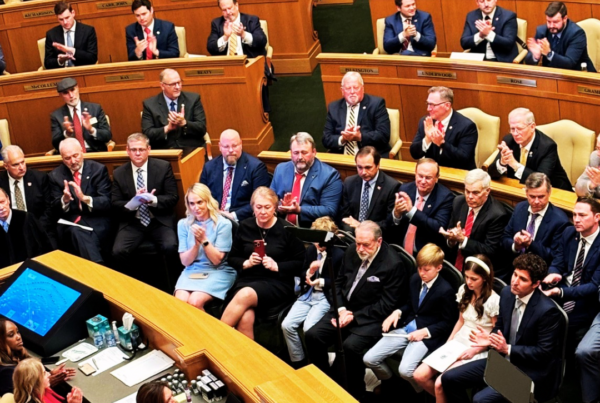Board of Corrections holds the line, preserves separation of powers
In the recent firing of Corrections Secretary Joe Profiri, Governor Sarah Huckabee Sanders has demonstrated a troubling disregard for the principles of separation of powers, a cornerstone of healthy democracies.
Profiri’s termination, followed by Sanders promptly hiring him as a senior advisor, underscores the governor’s willingness to exploit key positions for political gain at the expense of institutional checks and balances.
The saga began with Sanders granting Profiri a controversial $40,000 pay raise without the Board of Corrections’ approval which indicated a disregard for established procedures and oversight. The tension reached its peak when Sanders, Profiri, and Attorney General Tim Griffin publicly criticized the board for rejecting Profiri’s plan to add new inmate beds to Arkansas prison system. The board’s concerns about capacity were dismissed, setting the stage for a bitter power struggle which culminated in a lawsuit and Profiri’s firing.
Sanders’ decision to hire Profiri as a senior advisor immediately after his termination is problematic at best. The move raises questions about the governor’s commitment to the independence of oversight bodies. Bypassing the board’s authority and utilizing Profiri for political purposes conveys a stark undermining of the separation of powers. As we’ve mentioned extensively, separation of powers is crucial for preventing the concentration of power within on person or one branch of government.

The legal backdrop adds another layer to this situation. A judge ruled that Profiri served at the pleasure of the board, emphasizing the importance of Amendment 33, which grants independence to entities like the board. The injunction against new laws curbing the board’s authority reinforces the need for checks on executive power. Sadly, Sanders’ failed attempt to override these legal constraints erodes the delicate balance required for a functioning democracy.
Whether or not one agrees with the board’s decision, Sanders’ response to Profiri’s firing was telling. She labeled termination as a “political stunt” and accused the board of focusing on lies and power grabs. This same messaging was echoed on social media by legislators and politicos who had previously aligned with Sanders against the Board of Corrections. The coordinated rhetoric between Sanders and those pushing the message will likely cause turmoil in the Arkansas Republican Party, if it hasn’t already.
The swift move to hire Profiri as a senior advisor only deepens concerns about Sanders’ commitment to transparency and accountability. While the governor may argue that this decision is in the interest of public safety, it raises questions about the motivations behind leveraging a former corrections secretary for political gain.
In a democracy, the separation of powers ensures that no single branch can dominate — a vital function that serves to protect citizens. In this case, the Board of Corrections rightly exercised its autonomy, and as a result, protected the people of Arkansas from the overreach of Governor Sanders.
Governor Sanders’ handling of the situation should concern residents. Using key appointments for political fodder and disregarding the essential principle of separation of powers add to the list of Sanders’ indiscretions.
For Arkansas to thrive, it is crucial we have a governor who respects the independence of oversight bodies and uphold the checks and balances that protect our people from potential abuses of power. Sanders’ political stunt did quite the opposite.





